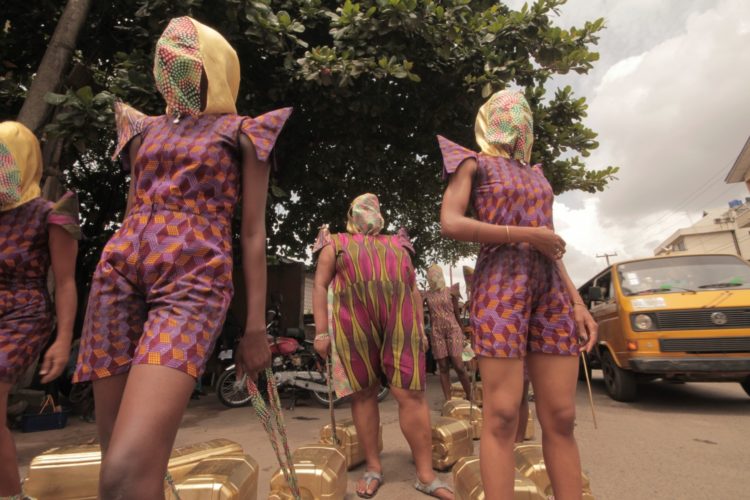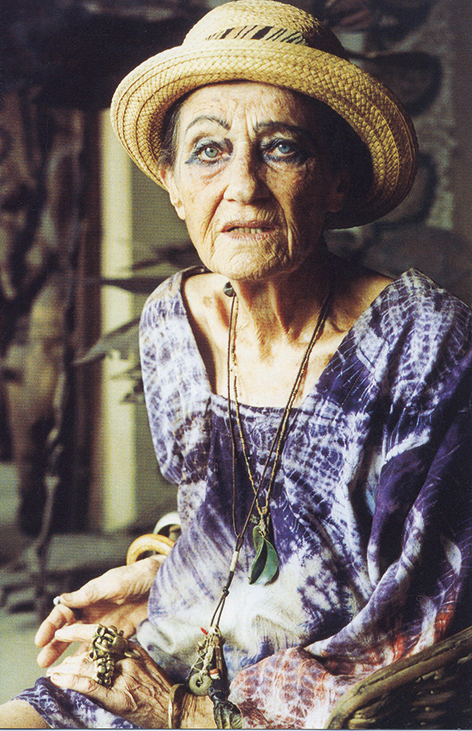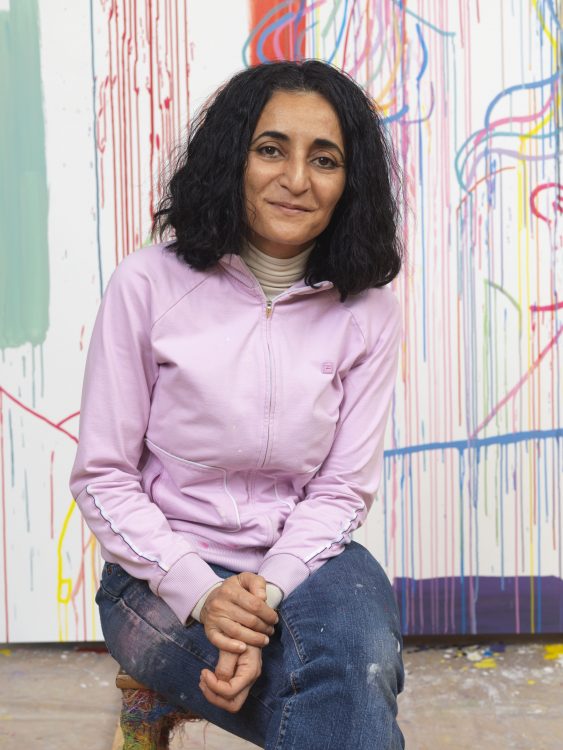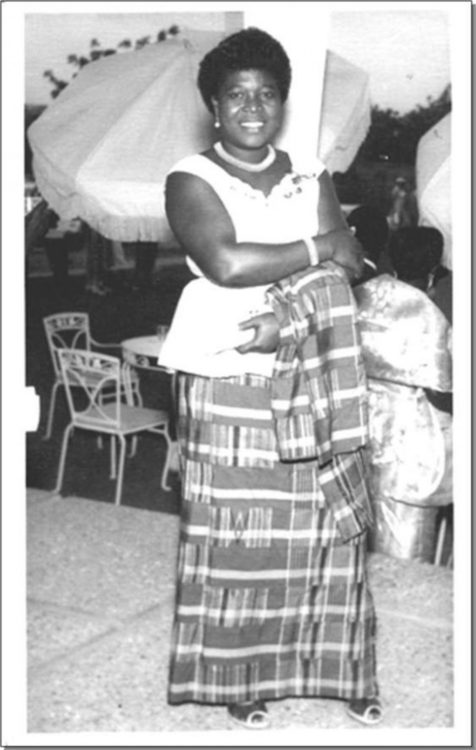Rebeka Njau
Wanjala, Alex, (2011), ‘Orality in Rebecca Njau’s The Sacred Seed’, The Global South, 5(2), 2011, pp. 93-106
→Busby, Margaret, ‘Rebeka Njau’ in Busby, Margaret (ed.), Daughters of Africa, New York, Pantheon, 1992, p. 415-421
→James, Adeola, ‘Rebeka Njau’ in James, Adeola (ed.), in Their Own Voices: African women writers talk, London, James Currey; Portsmouth, N.H., Heinemann, 1990, pp. 103-110
Rebeka Njau Exhibition, Nairobi, Paa Ya Paa Gallery, 1970
Kenyan educator, writer and textile artist.
Rebeka Njau, who has also used the pseudonym “Marina Gashe”, is Kenya’s first recognised female playwright and a pioneer in the representation of African women in literature. She was raised by Christian parents who rejected traditional Kikuyu beliefs and practices while maintaining a close relationship with her maternal grandfather, who instilled in her a love for nature and respect for indigenous spirituality. R. Njau was one of the first fourteen girls admitted to Alliance Girls High School in 1949 for a two year course, and one of three who continued on to Alliance High School for Boys for an additional two years. After an unsuccessful bid to study drama in the United Kingdom, she enrolled in Makerere University College in Kampala (Uganda) in 1954 and obtained a Diploma of Education in 1958. She returned to Kenya after graduation to teach at Alliance High School for Girls, before co-founding Nairobi Girls School in 1964. She married Elimo Njau (1932–), an artist from Tanzania, and their partnership was instrumental in the establishment of Kibo Art Gallery in Marangu, Tanzania, and Paa Ya Paa Gallery in Nairobi, Kenya. They had two children together and separated in 1983.
While at Makerere University College in Kampala, she attended the 1962 African Writers Conference during which R. Njau and Grace Ogot were the only East African women writers present. R. Njau’s poem, The Village, was included in Poems from Black Africa (1963), an anthology edited by Langston Hughes in which she is credited as ‘Mrs Elimo Njau’. Her play, The Scar (1963), which centers a former sex worker and addresses the issue of genital mutilation, was published in Transition Journal and performed at the Uganda National Theatre. A second play, In the Round Chain (1957), was performed at the same theatre in 1964 before being banned by the Ugandan government due to its critical portrayal of political oppression and its bold examination of the socio-political issues in the country. R. Njau was commissioned to design material for the costumes of the National Dance Troupe of Tanzania for their appearance at the first Pan-African Cultural Festival held in Algiers in 1969. She exhibited textile works made using batik and tie and dye techniques at the National Museum of Dar es Salaam in 1969, as well as alongside ceramicist Bente Lorenz (1922–2011), in Zambia. R. Njau showed her visual art at Paa Ya Paa gallery in Nairobi in 1970, and at the Malcolm X College in Chicago in 1977.
In the 1970s she experimented with painting, but these works, as well as a manuscript of writings about fellow artists working at the Nairobi gallery, were misplaced. In her memoir she claims the exclusion of her visual art from the Paa Ya Paa gallery archives was a deliberate act of sabotage by her ex-husband and former business partner, Elimo Njau. R. Njau’s other literary works include the novels Ripples in the Pool (1978), which features a lesbian relationship, and The Sacred Seed (2003). She edited Target, the magazine of the National Council of Churches of Kenya, during her tenure as the Director of Information and Education Programme of the Community Relations Project from 1975 until the early 1990s. She self-published her memoir, Mirrors of My Life (2019), and a paperback version of The Scar (2019). In 2022 a digital edition of The Sacred Seed was published by her children, Hana and Morille. Ripples in the Pool (1978) was reissued by Bloomsbury Publishing in Nairobi in June 2024, marking renewed interest in R. Njau’s literary works.
A biography produced as part of the project Tracing a Decade: Women Artists of the 1960s in Africa, in collaboration with the Njabala Foundation
© Archives of Women Artists, Research and Exhibitions, 2024



 UoN Travelling Theatre Performing ‘Karuga’, an enactment of a section of ‘Ripples in the Pool’ at the launch event for the reissue of Rebeka Njau’s novel Ripples in the Pool, by Bloomsbury Publishing at Alliance Française in Nairobi, Kenya on June 14, 2024
UoN Travelling Theatre Performing ‘Karuga’, an enactment of a section of ‘Ripples in the Pool’ at the launch event for the reissue of Rebeka Njau’s novel Ripples in the Pool, by Bloomsbury Publishing at Alliance Française in Nairobi, Kenya on June 14, 2024 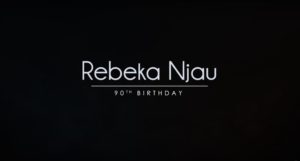 Rebeka Njau 90th Birthday Celebration, Nairobi 2023
Rebeka Njau 90th Birthday Celebration, Nairobi 2023 




















